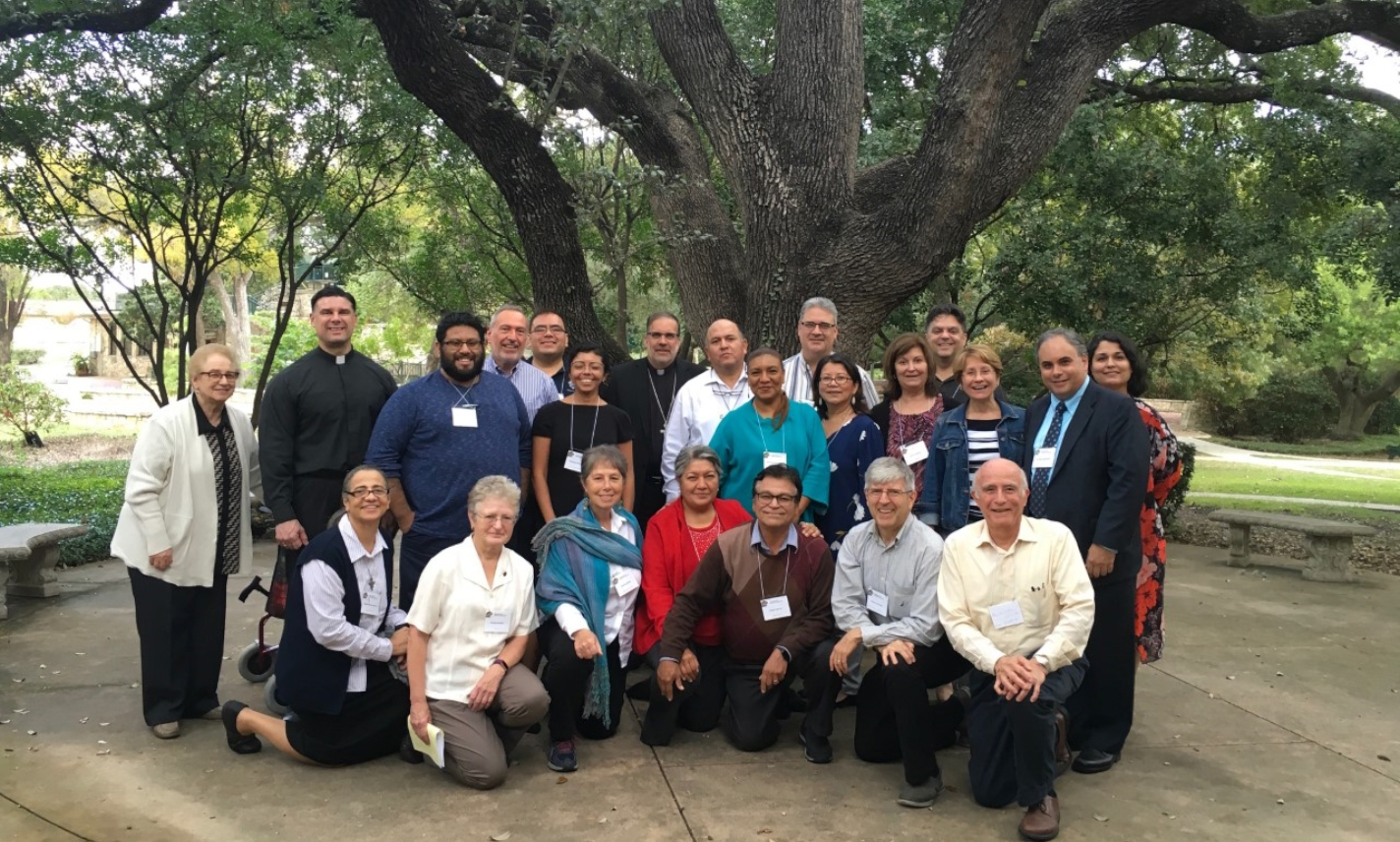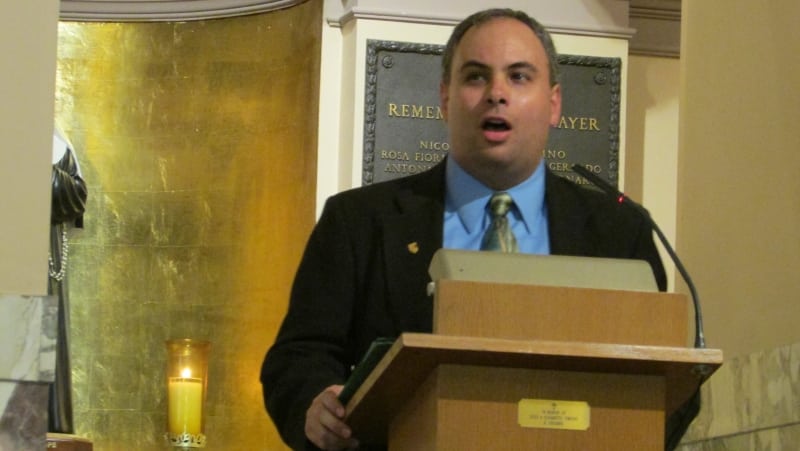“It is not the time of your judgment, but of our judgment: a time to choose what matters and what passes away, a time to separate what is necessary from what is not.”
In this time of COVID-19, as we think about the new paths forward for church, this quote from Pope Francis’s Urbi et Orbi address can inform our approach. What’s critical about the approach is discernment. Many organizations have gathered countless resources, for those who work in pastoral ministry, whether lay or religious, paid or volunteer.
There are numerous church documents and other prayer resources that we may return to in the coming weeks and months. However, today we want to highlight several best practices we’ve found that are at the national, diocesan, and local / parish levels, as well as resources for further reflection.
Each of these components brings a different gift to the table, an offering, as our communities prayerfully move forward with our pastoral responses to COVID-19. Church will not be the same. This realization can be overwhelming, and it can also be an opportunity. We have an unprecedented chance to examine best practices and consider how our theological reflection interacts with our lived practices and planning.
Local / Parish Level
At the pastoral level, as we tend to our parishes and faith communities, this resource is a good example of setting goals and then breaking them down practically into smaller tasks so as to achieve those goals. Most noticeable is that the focus is on the community being served, and the ways in which we are church. The final goal is financial, but it is not what comes first.
Collaboration is another key component. The example plan also highlights who and what organizations might be partners; this decision is integral. During this time of need, we are called even more than before, to work together. Additionally, by clearly identifying responsibilities at the beginning, with a focus on pastoral care and the community’s needs, there’s clarity around next steps and responsibility for outcomes.
Diocesan Level
Although St. Joseph Educational Center is not a diocesan-affiliated organization, it is an organization that serves the communities within the diocese of Des Moines. The director, Tom Quinlan, wrote some guidelines for how parishes could respond strategically and in a pastoral way. He highlights several things, the first of which is phone calls that are pastorally-focused, rather than financially-driven. There is space and room for connection and that is what people are hungry for. Find out what your parishioners need. Do they need food? Do they need spiritual support? The moment is optimal to strengthen those connections and relationships.
He closes by saying “We all are in unchartered waters. It can feel scary on a personal, visceral level. And yet we are a Church that pretty much has “been there and done that” over 2000 years. We must not be paralyzed, nor daunted. We have, after all, Jesus promising that we shall not perish on the roiling sea. And we have the purifying fire of the Holy Spirit as our sure inheritance from Jesus. If this crisis is revealing anything, it is our interdependence as a world and as the Body of Christ. Your personal modeling and strategic leadership in this very moment will define the future path of the entire Catholic Church, not just your parish.”
National Level
One resource at the national level that is especially helpful is found in Our Sunday Visitor (OSV). Their editorial board wrote a response to a prior open letter to the bishops. That letter was entitled “We are an Easter People.” The authors of the letter advocated for access to the sacraments, likening them to PPE for the people of God. The website states “The Sacraments are the spiritual ‘Personal Protective Equipment’ of Catholic and enable us to be in the field hospital of the sick and dying.” In their response, OSV raises important counterpoints. They speak of the bishops’ actions to close parishes in the initial stages of the pandemic as an act done “in faith, charity, justice and an overall concern for the common good; they have not simply taken their cue from civic leaders.” In such instances, it is helpful for those seeking to plan ministry responses during this time to consider the actions of such bishops, and to take their best practices and apply them, as possible, to our own situations.
Perhaps the article’s greatest strength lies in its conclusion:
“We are in a time of crisis. Nobody wants to be here. Nobody wants to be separated from the sacraments. Nobody wants to be separated from one another. But as an Easter people, we know that Christ is still among us, as he promised (see Mt 28:20). And we know that the risen Lord, who is not bound by the sacraments that he gives us out of his generous love, provides for the good of our souls. The magnitude of this crisis requires bold actions in response. In shutting down public Masses, the bishops took a bold move that will cost them dearly. But their choice was prudent and loving. Because while the body of Christ in the Eucharist is most assuredly worth dying for, we should never risk killing the members of the Body of Christ in order to receive it.”
Recalling that last line, I’m reminded of what Vatican II’s Constitution on the Sacred Liturgy (Sacrosanctum concilium) teaches about the presence of Christ in the celebration of the Eucharist. The Body of Christ is not just the bread and wine of the Eucharist at a liturgical celebration. It is the People of God, gathered. It is the Word proclaimed. While we are removed from liturgical celebration, we should hold close to the different ways Christ is present during these times of separation from the body of Christ in the Eucharist. The pandemic presents a moment of pastoral opportunity to care for the People of God. When Jesus ministered, he fed people and cared for them, and this time of unrest offers us a chance to do the same.
For Ongoing Reflection
One article that really dives into some of these questions is Andy Otto’s blog here.
What I most love about it is how he examines the situation through an Ignatian lens. The largest questions he’s addressing is how will church change, how can church change, in the midst of this pandemic. He writes: “The Church and its people will be waking up to what is essential for church to be church, which rituals and externals are of value and which distract from God…. I know the sacraments are a real encounter with God, but I also know that God is not confined to them.”
He also points out that while Resurrection is promised, it is also clear from the Gospels, that the resurrected body is not the same body. We are a Resurrection people, and this is a time of change and death. How are we being called to participate in the Trinitarian act of renewing the world? How will the new church, post-pandemic be different from the church we now know? We will continue to explore these questions.
* * *
 Monica Herald has a master’s in theology from Washington Theological Union, and she read theology and philosophy during her undergrad time abroad at Oxford University. After working in parish ministry, she worked for the Franciscan Action Network. She’s passionate about educating the People of God and feels grateful for her exposure to charisms from numerous religious orders. Today, Monica writes and speaks about matters of faith and meaning-making.
Monica Herald has a master’s in theology from Washington Theological Union, and she read theology and philosophy during her undergrad time abroad at Oxford University. After working in parish ministry, she worked for the Franciscan Action Network. She’s passionate about educating the People of God and feels grateful for her exposure to charisms from numerous religious orders. Today, Monica writes and speaks about matters of faith and meaning-making.



 Request Dr. DelMonico's professional services for a liturgical, ministerial or leadership consultation, or for an academic or public presentation.
Request Dr. DelMonico's professional services for a liturgical, ministerial or leadership consultation, or for an academic or public presentation.